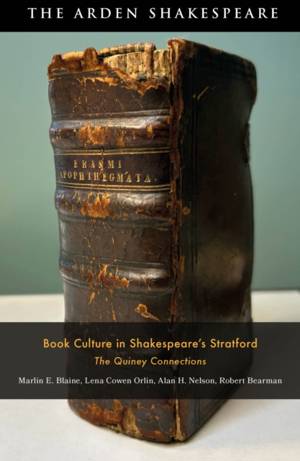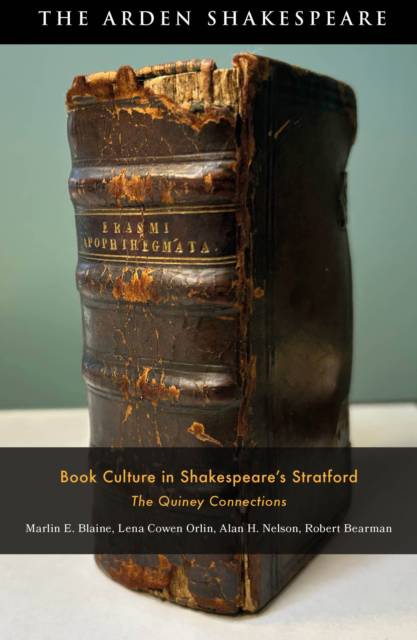
- Afhalen na 1 uur in een winkel met voorraad
- Gratis thuislevering in België vanaf € 30
- Ruim aanbod met 7 miljoen producten
- Afhalen na 1 uur in een winkel met voorraad
- Gratis thuislevering in België vanaf € 30
- Ruim aanbod met 7 miljoen producten
Zoeken
Book Culture in Shakespeare's Stratford
The Quiney Connections
Marlin E Blaine, Lena Cowen Orlin, Robert Bearman, Alan H Nelson
€ 186,95
+ 373 punten
Omschrijving
The recent discovery of two Latin books that once belonged to the Quiney family of Stratford-upon-Avon expands our understanding of Shakespeare's grammar school education and of the social, material, and learned networks that operated in his hometown. One of these books, the Apophthegmata of Erasmus, belonged to Shakespeare's friend and neighbour, Richard Quiney, while the other, a commentary on Aristotelian logic, was owned by a different Richard Quiney, who was Shakespeare's grandson.
Building from a simple account of these findings, Book Culture in Shakespeare's Stratford: The Quiney Connections sheds new light on the use of Latin in the market town that produced the world's most famous playwright. The story it tells weaves together analysis of letters, sermons, wills, public monuments and other printed books owned by local residents. Complementing these cultural explorations, biographical studies of Quiney family members and influential clergymen and teachers in Stratford evoke the impact of this learned culture on the lived experience of individual people. This study breaks new ground in our understanding of the rich educational environment that would enliven the plays and poems of William Shakespeare.Specificaties
Betrokkenen
- Auteur(s):
- Uitgeverij:
Inhoud
- Aantal bladzijden:
- 288
- Taal:
- Engels
- Reeks:
Eigenschappen
- Productcode (EAN):
- 9781350558526
- Verschijningsdatum:
- 11/12/2025
- Uitvoering:
- Hardcover
- Formaat:
- Genaaid
- Afmetingen:
- 156 mm x 234 mm
- Gewicht:
- 576 g

Alleen bij Standaard Boekhandel
+ 373 punten op je klantenkaart van Standaard Boekhandel
Beoordelingen
We publiceren alleen reviews die voldoen aan de voorwaarden voor reviews. Bekijk onze voorwaarden voor reviews.







